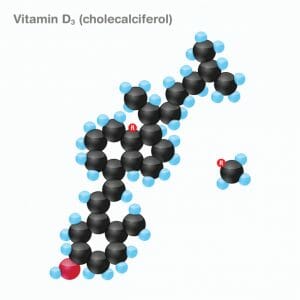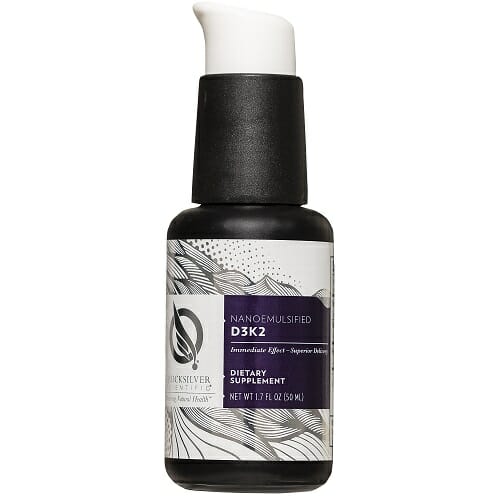The Connection Between Vitamin D, Sunlight & the Immune System

Even before this unprecedented event, people have been spending gradually larger amounts of their free time indoors and out of the sun. In some ways this is good for our health given the carcinogenic effects that UV rays from the sun can have on the skin.
However, sunshine is essential for our health on a number of levels. One of those levels is purely psychological, but there is also a more concrete and physiological need for sunlight on the skin: Vitamin D production.
Table of Contents
Vitamin D & Sunlight: Fact or Fiction?
By now most people are aware of the concept that exposure to sunlight increases Vitamin D levels in the body. But is this just a concept, or is it reality? Is it just a silly myth, or is it hard science?
The truth is that, yes indeed, sun exposure does cause the body to generate more Vitamin D. It may sound like science fiction in some ways, but it’s really just a hard fact.
Now it’s time to answer everyone’s favorite question: How on Earth does that work?

The molecule of vitamin D3 (cholecalciferol) which is organically produced in the skin. This is also the most bioavailable form of Vitamin D for supplementation.
When human skin is exposed to sunlight, a molecule known as 7-Dehydrocholesterol, which is always present in the skin, absorbs these UV rays and converts them into a molecule known simply as previtamin D3.
From there, the previtamin D3 experiences isomerization – a process in which one molecule transforms into another molecule with the same atoms, but a different arrangement of said atoms. In this case, it isomerizes into cholecalciferol, also known as Vitamin D3. (1)
Great… What’s the Catch?
While it is undoubtedly possible to increase your D3 levels through sunlight exposure alone, many experts fear that this source is inadequate in and of itself.
This is especially true at the time of writing this when millions and millions of people throughout the world are sheltering in place and avoiding sunlight almost entirely. It’s also worth noting that elderly populations tend to be more at risk of Vitamin D deficiencies than others. (2)
Due to these shortcomings, it is common for medical professionals to recommend increased Vitamin D intake in the form of fortified foods and dietary supplements, regardless of any quarantine.
The Importance of Vitamin D for the Immune System

The first things that come to mind when considering the benefits of Vitamin D are usually related to bone health. Indeed, its bone health benefits are undeniable, (3) but don’t let that distract you from the exceptional immune support properties of this fundamental nutrient.
The immune system is dependent upon a number of “immune cells”. These include B cells, T cells and antigen presenting cells which are largely responsible for immune responses. These immune responses are essentially your body’s reaction to foreign and potentially harmful particles such as bacteria and viruses. Naturally, these responses are the first, and arguably most integral step for your immune system to take in defending the body from all manner of pathogens.
Many experts agree Vitamin D has important functions in the “modulation of the innate and adaptive immune responses”, as emphasized by a 2012 review conducted by Dr. Cynthia Aranow of the Feinstein Institute for Medical Research. (4)
As such, it’s important to acknowledge that a Vitamin D deficiency is likely to be highly disruptive to the overall function of the immune system. Given the importance of immune health and lack of sunlight exposure that so many people are experiencing, D3 may be one of the most useful supplements to have in your arsenal. Not just for the sake of your immune system, but also for the health and balance of countless other bodily systems and functions.
Conclusion
Unlike many other nutrients, the science around Vitamin D is extensive and fairly non-controversial. Scientists know with absolute certainty that sunlight exposure is an important source of this critically important nutrient. The potential dangers of Vitamin D deficiencies are also widely acknowledged.
If you find yourself with limited sunlight exposure for any number of reasons, then you may want to consider picking up a quality Vitamin D3 supplement. Vitamin D3, also known as cholecalciferol, is universally considered to be the most active form for supplementation. If your Vitamin D supplement does not utilize D3, you may want to consider replacing it.

Vitamin D and Vitamin K are always better taken together. Click here to find out why.
Thank you for taking the time to read The Connection Between Vitamin D, Sunlight & the Immune System
Please note: All information presented to you in this website is intended for your general knowledge only and is not a substitute for medical advice or treatment for specific medical conditions. We cannot, and will not give you medical advice. We strongly recommend you consult your physician for any and all specific health issues. If you have any questions or contributions, please contact us via email or phone-call. We are constantly looking for new information to promote wellness – and hearing from you would make our day.
Live Vibrantly!

